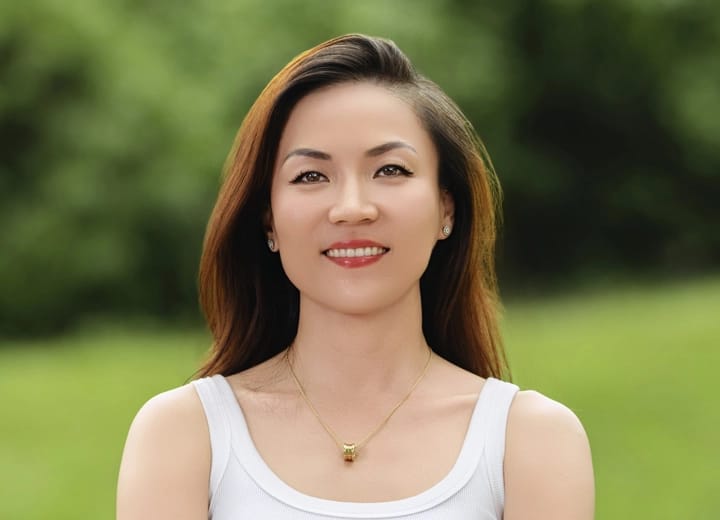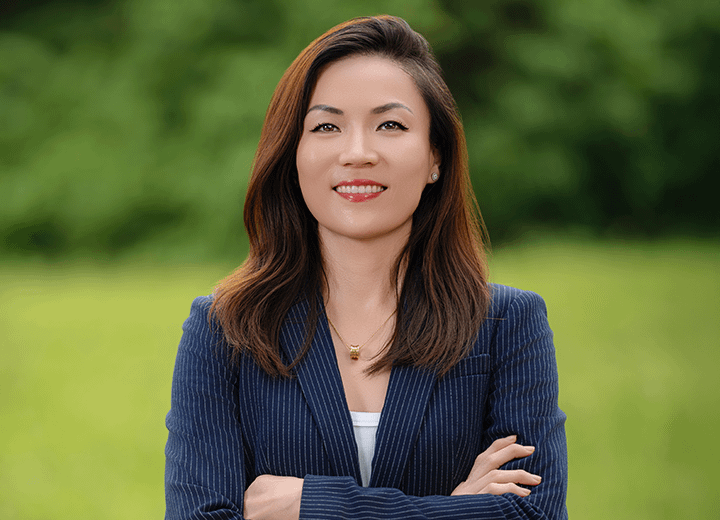Finding My Way to Leadership
What I never expected to learn as a scientist — constant communication and managing people.
What is the hardest lesson I learned as a scientist-turned-company president?
As scientists and engineers, many of us are comfortable working as independent contributors where we spend time solving problems through individual research and study of the issues. While we enjoy social activities, we also enjoy working at the bench or on the computer on our own, outside of the hustle and bustle of meetings.
Recent publications, such as Susan Cain’s book Quiet: The Power of Introverts in a World That Can’t Stop Talking, have defended the choice many of us make to avoid brash behavior and focus on accomplishing our tasks without fanfare.
Nonetheless, the development of new products requires team efforts and for many of us we find ourselves not only part of a team but thrust into positions of leadership where we must plan schedules and budgets, then encourage others to follow these plans.
The Unexpected Manager
Why leading a food bank line revealed my hidden strengths.
I recall a time when with a group of friends, we volunteered at a food bank to pack boxes for Thanksgiving meals. The food bank leader asked who in the group was in manufacturing. I admitted I was, and he asked me to set up three production lines. I demurred saying I didn’t need to lead the group, but he insisted, saying that manufacturing people understand intuitively how to get things done.
And I must admit that a background in science and engineering, coupled with experience in manufacturing, leads to an understanding of how to be organized and focus on goals. Indeed, one of my most rewarding work experiences was serving as a project manager to bring a new pharmaceutical product to market.
Allow me to digress and speak briefly about the discipline of project management. In the book Revolutionizing Product Development by Harvard Business School professors Steven C. Wheelwright (yes, he is my brother) and Kim B. Clark, they describe four types of teams: functional teams, autonomous Tiger teams, teams with a professional project manager and teams with a heavyweight project manager, where the project manager is a senior executive in the company. I prefer this latter type because I consider it more efficient in terms of executing in a shorter time.
Anyway, I was VP of operations and development at a biotech company, and we brought a protein drug through development and filed the NDA through our partner in Japan. The product has been on the market for 20 years and still sells about $100 million per year. Learning how to manage schedules and budgets, communicating with and leading our in-house team and coordinating our foreign partners’ activities was a big challenge for me. There were hundreds of pages of documents that we prepared and sent to Japan, where they were translated and then submitted to the regulatory agency. Communication has always been difficult for me, and I have always envied colleagues who feel comfortable in diverse social situations.
Learning to Communicate – The Hard Way
Growing from social awkwardness to confident leadership.
I was born socially awkward. I remember as a teenager, before I would call a girl to talk to her, I wrote out potential questions and things to say, so that when my mind went blank, I wouldn’t stammer and hang up. The skills we need to be good managers, such as communication and planning, are skills we can learn. And as scientists and engineers, we know how to learn.
One book I share often with colleagues is Carol Dweck’s book titled Mindset. Dweck explains that in order to learn we must be willing to fail, and if we are not willing to fail, we cannot learn. When we carry out experiments, we learn from our failures, and we understand that every failure is a learning opportunity. We are not afraid to try and see what happens. For this reason, I believe that scientists and engineers make very good managers when they have a learning mindset. We recognize we have done hard things in the past, and experiments that don’t lead to the desired outcome lead to further questions. Asking questions is the key to learning.
From Lab Tech to Global Pharma
The formative years: HIV, Hep C and lessons from biotech titans.
My first industrial employment was with Abbott Laboratories Diagnostics Division in North Chicago, Illinois. Abbott was a fully integrated company with sales, marketing, research, development, and manufacturing. I learned many lessons there, especially how a profitable company functions through the interaction of many disciplines that work towards common goals. While at Abbott I was part of the team that developed and brought to market the world’s first commercial product for diagnosis of HIV. This product was used for screening blood before transfusion to ensure HIV infected units were not transfused. The group I was part of at Abbott included scientists and engineers with widely different backgrounds. We developed many new products based on new technologies. It was a great learning experience.
Later I worked for a biotech startup in Emeryville called Chiron Corporation. With only 230 people but with a wide range of products under development, it was a challenge. We were not a fully integrated company, and everyone wore many hats in order to get everything done. Under the direction of Dr. Michael Houghton, we developed the world’s first diagnostic for Hepatitis C. Michael received the Nobel Prize for Medicine in 2020 for his work on Hep C. I give credit to my many capable supervisors at Chiron (I had one job for five years but six different bosses; was I really so difficult to manage?) who taught me how to become a better manager, how to mentor staff as I was mentored, and how to learn skills to improve. These work experiences also introduced me to many coworkers in the industry that have continued to kindly respond to emails and direct me to answers to my questions.
The Global Mindset
What India, China and collaboration taught me about health and humanity.
I have had the opportunity to lead many organizations as a result of these skills I was taught by great colleagues, supervisors, and work challenges over many years. My work experience included living in India and China for extended periods. Many kind people in many different circumstances have helped me learn the skills I have used in my work.
One advantage of working in the health care industry is the many nice people we work with. Most people who work in our industry do so because they want to help other people. While everyone appreciates money and recognition, I have observed that most people in our industry enjoy developing products that have a positive benefit in the health of others. Some professions focus only on making money, but in health care we seek ways to be of benefit.
Another advantage of our industry is the opportunity to learn new things. We work in an industry where new technologies are always under development for application in new ways. Many of us have the opportunity to participate in seminars and training that teaches us new technical skills and enables us to apply new technologies to our work. This can be exciting and motivating.
The Case for Curiosity
Why I believe generalists matter in a world of specialists.
One question we each face is where to focus our time. Should we emphasize those strengths we already have or learn new skills? Should we specialize on a particular narrow niche or broaden our capabilities over a wider range of activities? Many choose to specialize. Becoming the world’s top expert in a particular field is a great thing and allows us to have influence. On the other hand, many discoveries take place at the confluence of two fields, so learning about a new area and how to apply it to our specialty enables new development. I have a wide range of interests beyond science, even into art and music. It has been easy for me to be a generalist and though I am not the world’s leading expert in any one topic, I can discuss most topics and ask questions about many technical areas. (Though I admit I am not current with modern movie stars and my children consider me hopelessly old fashioned.)
Chromatography and the Founding of BCI
The science I started with and why it still excites me.
My graduate studies in chemical engineering at the University of California at Berkeley focused on adsorption and chromatography. My dissertation was directed by Professor Theodore Vermeulen and Gerhard Klein, the original authors of the section on adsorption and ion exchange in the Perry’s Handbook of Chemical Engineering. And though my career has included many technologies besides separations, I have always followed the literature and participated with experts in this field.
In recent years I have been drawn back to studies in chromatography. As I have followed the trends in the industry, and in conversations with my friends Professor Alois Jungbauer of the University of Agriculture, Forestry & Biotechnology in Vienna, Austria, and Professor Shuichi Yamamoto of Yamaguchi University in Japan, with whom I have had the privilege of publishing journal articles, I have come to recognize an opportunity to improve convective chromatography media for separation of viruses used in cell and gene therapies, for vaccines, and for moieties such as exosomes, pDNA, mRNA and other biopharmaceutical products.
BioChromatographix International (BCI) was born from these discussions. With my colleague Chervee Ho, whom I have known for over ten years through her work in sales and marketing in the pharmaceutical industry, Chervee and I decided to start BCI in Singapore where she is a resident, and where I have recently relocated after fifteen years in China. We have been fortunate to move into an incubator lab space at Biopolis in Singapore and build a small team of experts as we develop our novel products, which we expect to launch to the market later this year. Our first product is an ion exchange media for purification of plasmids and AAV. We shall soon publish data showing our capabilities.
Looking Forward
What I value most today: People, Purpose and Products.
For many years I have been content to serve as head of operations, a job I have found very fulfilling. I was fortunate to major in chemical engineering, a field that I have enjoyed immensely because it taught me how nature works. Fundamental laws of thermodynamics, mass transfer and heat transfer underpin all natural processes.
I like to make things and see products go to market. I have learned many lessons on managing people (my primary reference is Albert Shapero’s Managing Professional People). The most important lessons have been in communication (I am not an expert, but try to continue learning), and project management. All management is related to persuading people to do things that help us achieve our goals, whether they report to us or not.
Now BCI has embarked on a new adventure, bringing new chromatography media to market. Our goal is to increase the efficiency of separations and reduce the cost of manufacturing advanced therapies. We look forward to working with old and new colleagues throughout the industry to advance the growth of health care. We are open to collaborations and welcome your suggestions. Please contact us and propose opportunities.
Bibliography
Susan Cain, Quiet: The Power of Introverts in a World That Can’t Stop Talking, Crown, 2012.
Steven C. Wheelwright and Kim B. Clark, Revolutionizing Product Development, Free Press, 1992.
Carol Dweck, Mindset, Random House, 2017.
Albert Shapero, Managing Professional People, Free Press, 1985.
About Author:
Scott M Wheelwright brings decades of expertise in biopharmaceutical development and manufacturing. Prior to BCI, he co-founded Biolnno Bioscience, a leading CDMO, and co-founded Innovent Biologics, one of China’s foremost biotechnology companies. He previously held leadership positions at Abbott, Chiron (now Novartis), and Scios (now Johnson & Johnson), contributing to the development of therapeutics for oncology, dermatology, and cardiovascular disease. Dr. Wheelwright earned his PhD in Chemical Engineering from the University of California, Berkeley, and was a visiting scholar at the Max Planck Institute.
Learn more at: [www.biochromatographix.com]
Follow us on LinkedIn: https://www.linkedin.com/company/biochromatographix/
Media Contact:
Chervee Ho
Co-Founder, Vice President of Commercial Operations
Email: [hello@biochromatographix.com]
LinkedIn: https://www.linkedin.com/in/cherveeho/





